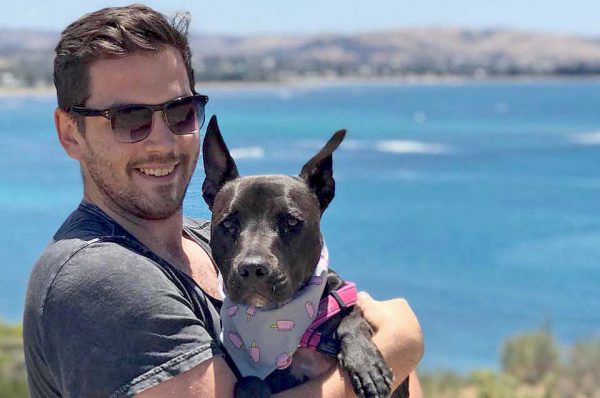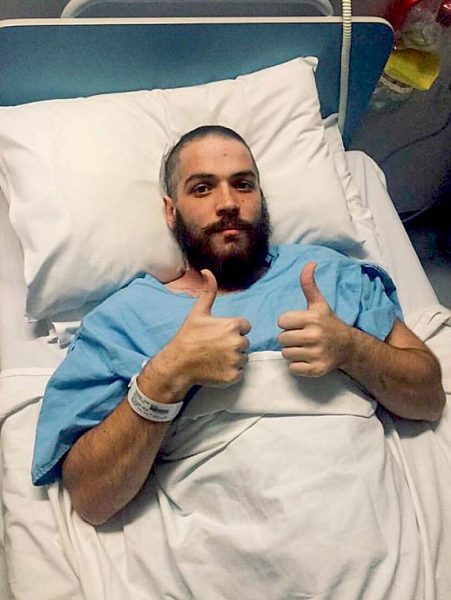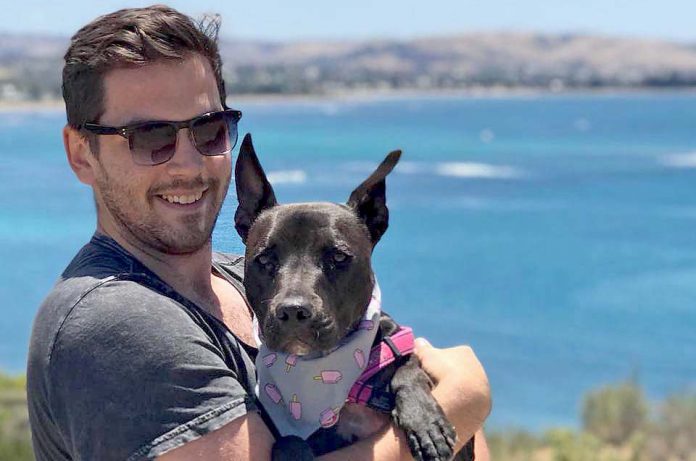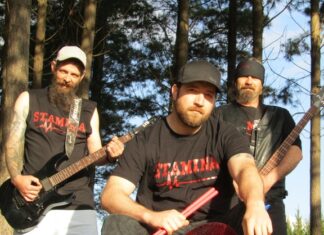
CHERISH your family and friends because you never know what is around the next corner.
That is the advice of 23-year-old Ryan Cranage after his world was turned upside down when he was diagnosed with cancer two years ago.
The former Millicent local was looking forward to celebrating his 22nd birthday when he discovered he had medulloblastoma, a fast growing high-grade brain tumour.
It became apparent that something was not right in early June 2016 when the then 21-year-old started getting headaches, walking into walls and generally feeling “really tired and worn out all the time”.
“I knew something was wrong, but I just put it off as a cold or flu or something like that,” Ryan said.
“Then I bought a new pairs of shoes, I could not even do the laces – I just was not in a good way.
“I went to try out the shoes on a local walking trail and got maybe 20 metres from the car.
“I could not see, could not stand up and I could not walk.”

Realising that it was more than a cold or flu, Ryan decided to go to the doctor.
He was told it was most likely glandular fever and was given medication and a two-week medical certificate.
However, Ryan started feeling worse by the day and was not showing any signs of improvement.
By day 13 he decided to get in touch with the doctor again, but before he had the chance, he passed out.
“I had a seizure that lasted around five minutes,” Ryan said.
“My girlfriend called the ambulance, they came to my house and I do not really remember much after that.
“I was yellow in colour and I was mixing my words, there was obviously something seriously wrong.”
Ryan was rushed to the emergency room at the Royal Adelaide Hospital.
There he spoke to a doctor and was sent for a CT-scan.
When he returned from the scan he knew something was wrong.
“A bunch of surgeons walked in and that’s when they notified me – I had a mass on my brain,” he said.
“I honestly did not know what a mass was, but I knew it was not good news.”
Ryan spent the night in the hospital’s intensive care unit hooked up to machines and unsure what was happening.
It was not until his mother and brother arrived that it started to sink in how serious the situation was.
Three days after the seizure he was notified that he was going into surgery.
In the lead-up to his surgery, Ryan spent time with family and friends, thinking the worst – that it would be the last time he would see them.
“I said my last goodbyes to my family, I did not really know if I was going to make it,” he said.
“I tried to put on a brave face and I tried to act strong, but you can only act strong for so long.”
The surgery took seven hours and involved 15 to 20 doctors who removed the four by four centimetre tumour from the back of his head.
The days that followed were a bit of a blur for Ryan, who was informed the tumour was cancerous.
“It came as a bit of a shock because I had just turned 22, you do not think that things like that are going to happen to you,” Ryan said.
Ryan was bedridden in hospital for two weeks following the surgery.
He was limited to sponge baths and had to use a bottle when he needed the toilet.
Restricted to his bed and with no window in his room, Ryan was miserable.
“I convinced the doctors to let me outside so I could get some fresh air,” Ryan said.
“It was the best thing ever.
“I’d been in hospital at that stage for 13 days without fresh air or sunlight.
“I did not have windows in my hospital room so I did not see the outside world for two weeks, which was horrible.
“I was pretty miserable.”
After the drain that was clamped to his back to collect fluid was removed he was able to walk, shower and use the toilet again.
Days passed and Ryan started building up his strength with the assistance of a physiotherapist.
He was released from hospital on day 23 after passing all the necessary physical tests, which was the “greatest moment ever”.
However, his battle did not end there.
Ryan had to undergo radiation therapy from Mondays to Fridays for six weeks as well as chemotherapy once a week.
The main side effects included drowsiness, vomiting and weakness.
In addition to the side effects, going to the hospital daily for the 22-year-old was “very tiring”.
“I finished my six weeks of radiation and chemo and was then on a one month break,” Ryan said.
“After that I went in hospital once a month for six months on a different chemo drug.”
Two years later and cancer-free for a few months, Ryan is still affected by his battle.
“I get headaches regularly and the brain tumour’s location has affected my coordination quite severely,” he said.
“The circulation in my feet has slowly returned, but not entirely and I have hearing loss.
“I also have to see a psychologist to help me deal with the emotional toll of the cancer.”
While his life has changed dramatically, his diagnosis has made him realise what is important in life and he now does not take the “little things” for granted.








